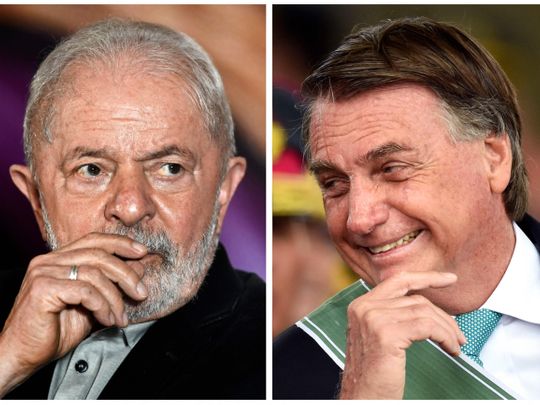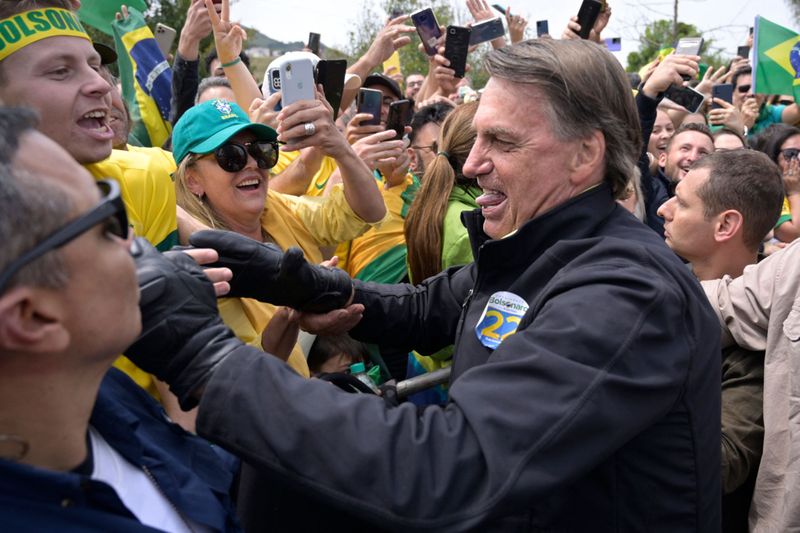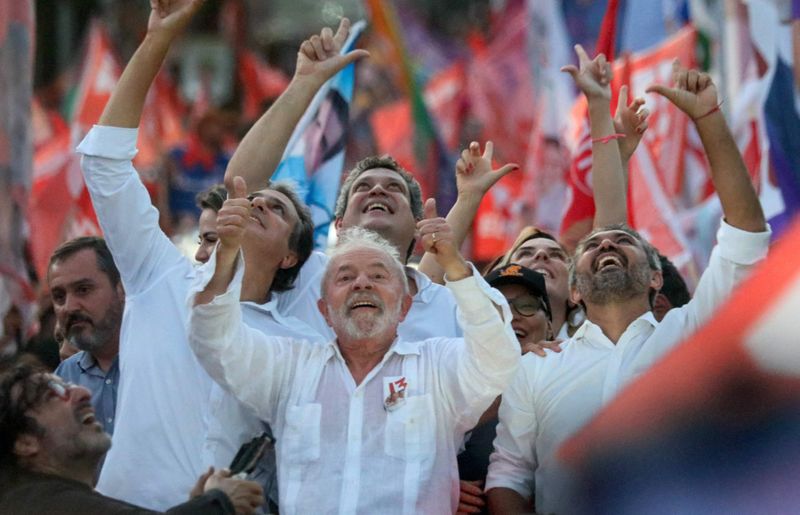
SAO PAULO: Brazil’s presidential election will be decided by tens of millions of poor people, and they look set to eject incumbent Jair Bolsonaro from office — either in Sunday’s first round or in a runoff.
The far-right leader is reminding them of his pandemic welfare programme that morphed into a monthly handout equal to $112. The race’s frontrunner, leftist former President Luiz Inacio Lula da Silva, is rekindling memories of his 2003-2010 presidency, when many poor Brazilians could suddenly afford barbecue on the weekends. In 2014, the UN removed Latin America’s biggest country from its Hunger Map.
Since then, Brazil’s economy fell into the dumps, rose to the doldrums and then fell back. This year, the economy started recovering again and unemployment is at its lowest since 2015, but many remain doing informal, occasional jobs, and rampant inflation put even sufficient basic food out of their reach.
Thirty-three million Brazilians were going hungry in the six months through April, according to a study by several nonprofit organisations, including Oxfam.
Both Bolsonaro and Lula promise to boost government spending on the poor if they win, which would mean either skirting or scrapping a constitutional cap on expenses. Many Brazilians are leery, particularly regarding the incumbent, whose 2023 budget proposal didn’t include extension of the welfare programme at the same level.

“They seem to associate the continuity of those policies with a change (of administration),” said Mario Sergio Lima, a senior Brazil analyst for Medley Global Advisors.
Even in Brazil’s wealthiest state, the poor are giving a boost to Lula, who has only carried Sao Paulo once in his five prior runs. In the hardscrabble community of Jardim Angela, local leader Regina Paixao said many who voted for Bolsonaro have turned against him because of hardship. Some “haven’t eaten beef for ages’’ and hold him responsible, she said.
Another community member, Paula Araujo, who sometimes works as a housekeeper, experienced hunger for the first time during the pandemic. She couldn’t afford gas to keep the stove running beneath the leaky roof of her tiny home, so she has used an electric iron to heat her pots. She cooked packets of instant noodles for nearly every meal, most of them donations, but it wasn’t enough.
She and her husband Andre say pandemic welfare only arrived in late 2020, once they were already suffering hunger. The $37 increase Bolsonaro authorised in August as part of his electoral push was consumed by inflation.
“We want to sleep because we are hungry, and we can’t sleep because we are hungry,’’ a tearful Araujo, 46, told The Associated Press. “I didn’t vote for Bolsonaro four years ago, but I would be just crazy if I did it this time after all this.’’
The split among the poor is among the most lopsided in this race: Lula has 54 per cent support from those making less than two minimum wages per month — equal to $450 — and Bolsonaro just 26 per cent, according to a September 29 Datafolha poll that had a margin of error of plus or minus two percentage points.

Low-income Brazilians would have to show up in force on Sunday for da Silva, known universally as Lula, to earn an outright majority of votes in a multi-candidate field and secure a first-round victory. Though voting is legally mandatory in Brazil, the abstention rate is as high as 20 per cent, which analysts like Lima believe could lead to an October 30 runoff.
“This is a group that traditionally abstains more. I don’t think that will be key, but that might reduce the chance of an outright victory for Lula,’’ he said.
Even if abstentions on Sunday help Bolsonaro reach a runoff, he still needs to win over some poorer Brazilians if he’s to have any chance of victory. That fact seemed to elude him in August, when he said in an interview “real hunger doesn’t exist’’ in Brazil and received a deluge of criticism.
He has since changed his tune, recognising hunger as a pressing problem, but he blames its origin on the governors and mayors who imposed lockdowns during the pandemic.












